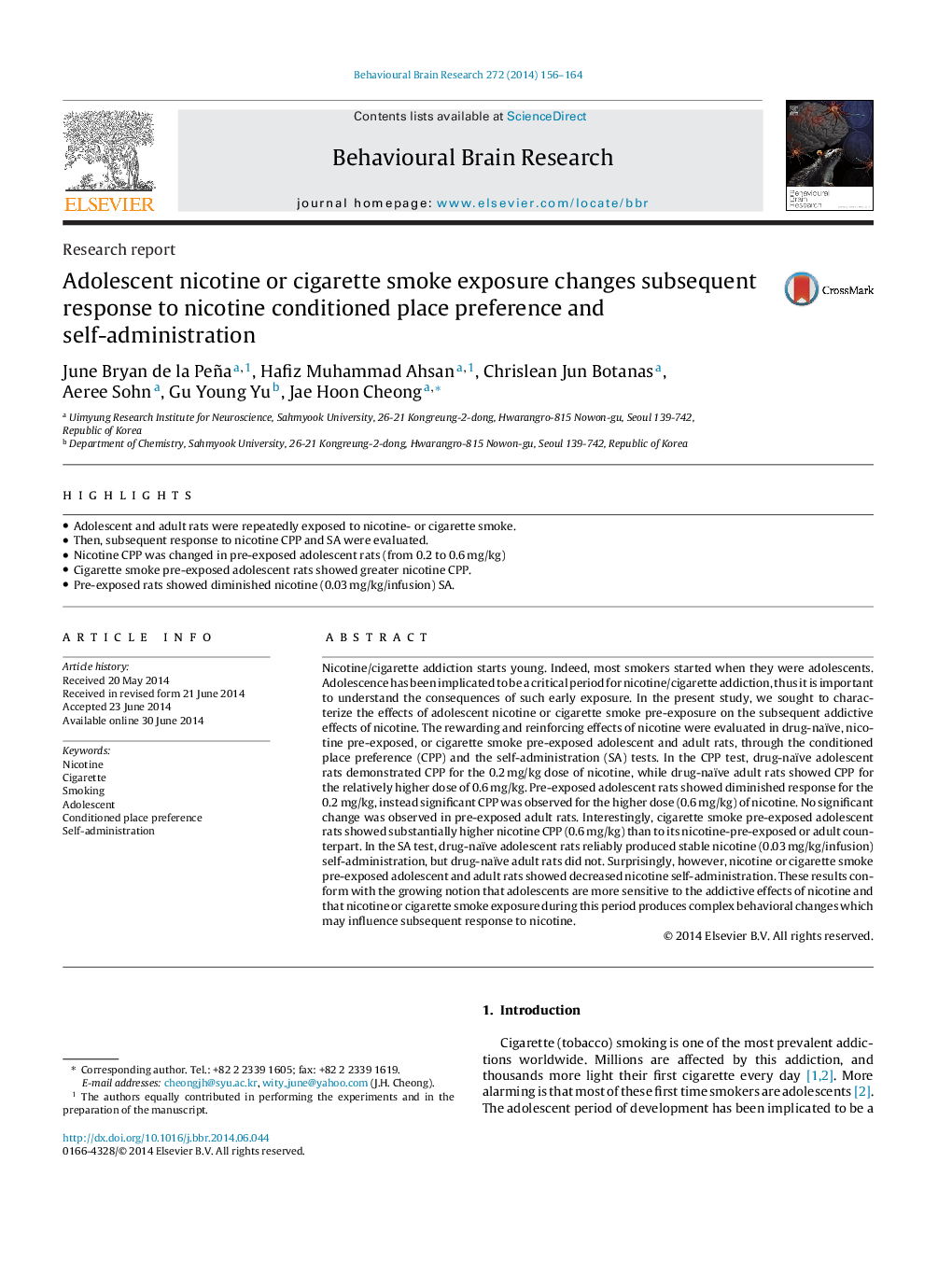| Article ID | Journal | Published Year | Pages | File Type |
|---|---|---|---|---|
| 6257495 | Behavioural Brain Research | 2014 | 9 Pages |
â¢Adolescent and adult rats were repeatedly exposed to nicotine- or cigarette smoke.â¢Then, subsequent response to nicotine CPP and SA were evaluated.â¢Nicotine CPP was changed in pre-exposed adolescent rats (from 0.2 to 0.6 mg/kg)â¢Cigarette smoke pre-exposed adolescent rats showed greater nicotine CPP.â¢Pre-exposed rats showed diminished nicotine (0.03 mg/kg/infusion) SA.
Nicotine/cigarette addiction starts young. Indeed, most smokers started when they were adolescents. Adolescence has been implicated to be a critical period for nicotine/cigarette addiction, thus it is important to understand the consequences of such early exposure. In the present study, we sought to characterize the effects of adolescent nicotine or cigarette smoke pre-exposure on the subsequent addictive effects of nicotine. The rewarding and reinforcing effects of nicotine were evaluated in drug-naïve, nicotine pre-exposed, or cigarette smoke pre-exposed adolescent and adult rats, through the conditioned place preference (CPP) and the self-administration (SA) tests. In the CPP test, drug-naïve adolescent rats demonstrated CPP for the 0.2Â mg/kg dose of nicotine, while drug-naïve adult rats showed CPP for the relatively higher dose of 0.6Â mg/kg. Pre-exposed adolescent rats showed diminished response for the 0.2Â mg/kg, instead significant CPP was observed for the higher dose (0.6Â mg/kg) of nicotine. No significant change was observed in pre-exposed adult rats. Interestingly, cigarette smoke pre-exposed adolescent rats showed substantially higher nicotine CPP (0.6Â mg/kg) than to its nicotine-pre-exposed or adult counterpart. In the SA test, drug-naïve adolescent rats reliably produced stable nicotine (0.03Â mg/kg/infusion) self-administration, but drug-naïve adult rats did not. Surprisingly, however, nicotine or cigarette smoke pre-exposed adolescent and adult rats showed decreased nicotine self-administration. These results conform with the growing notion that adolescents are more sensitive to the addictive effects of nicotine and that nicotine or cigarette smoke exposure during this period produces complex behavioral changes which may influence subsequent response to nicotine.
